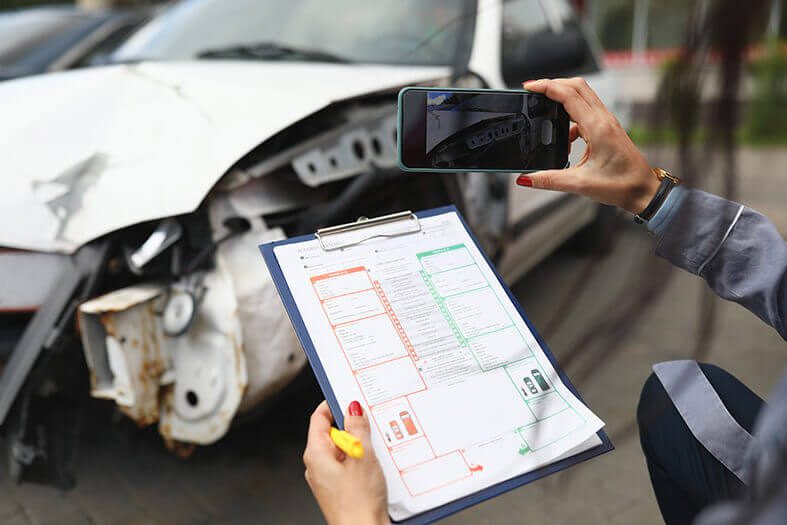Whiplash Injury Claim
Whiplash injuries can have serious implications for the victim.
If you have been involved in a road traffic accident and have suffered a whiplash injury you may be able to claim compensation.
What is a whiplash injury:
Whiplash is a description used for the movement of the neck when there is a sudden impact which stretches the ligaments and muscles beyond their normal limits. This usually occurs when a vehicle in which you are traveling is hit from behind or else comes to a very sudden stop. Whiplash injuries can also be caused by a fall or an impact directly to the head. Whiplash can range from minor to very serious and it can have serious and long-term complications.
How long will whiplash last?
The answer to these questions varies depending on the seriousness of the accident and also the victims existing medical conditions such as arthritis. Whiplash can cause an exacerbation of existing conditions which can extend the recovery period.
What are the symptoms of whiplash:
Typically the first symptoms of whiplash appear within hours of the car accident or fall. Often the symptoms begin with a headache with a feeling of stiffness or a burning sensation in the neck and back. Patients often report that they have restrictions in turning their head from side to side and the sensation can move down the arms and shoulders.
Do I need to see a doctor regarding whiplash?
Whiplash symptoms develop a few hours following the accident and the conditions can continue to deteriorate over the following days and weeks. If you are concerned about your condition you should immediately seek the advices of your GP or A&E department.
What is my whiplash injury compensation worth?
Judicial guidelines have recently issued in Ireland which set the parameters for compensation for whiplash injuries. The level of compensation will depend on the severity of the injury and also how long the injury persists and if specialist referral is required.
Your claim for whiplash injury may also involve a claim for your loss of earnings and also the cost of any physiotherapy or alternative therapies which you may require to help ease your symptoms.
How long have I got to make my whiplash claim?
The statute of limitations requires that all claims are made within 2 years from the date of the accident.
How long after an accident must I make a claim?
It is really important that you begin to investigate the claim as soon as possible and as soon as you are physically well to do so. This is because details from an accident can be lost such as a road layout may change or vehicles can be fixed before they are photographed. The nature and extent of the damage to each vehicle can be a very important piece of evidence in determining how the accident happened.
If you have had an accident, be it a road traffic accident, workplace accident, slip trip or fall, there has always been an obliged on you to serve a letter of claim on the responsible party, setting out the cause of your action and details of the injury suffered by you.
Section 13 of the Central Bank (National Claims Information Database) Act 2018, which took effect from the 28th of January 2019, states that any Plaintiff who wishes to bring personal injury proceeding must serve a letter of claim within one month from the date of the accident. If they fail to do so and the case is ultimately heard by a Judge, then that Judge “shall” draw such inferences as appear proper and either refuse to award legal costs to the Plaintiff or reduce the costs, where the interests of justice so require.
So, therefore, any person intending to bring a personal injury action must immediately make contact with your Solicitor following the accident, otherwise, it is mandatory for the trial Judge to impose adverse consequences on the Plaintiff.
You do have two years from the date of the accident to lodge your claim with the Personal Injuries Assessment Board, however, you must now serve your warning letter on the other party within one month from the date of the accident.
How is compensation assessed?
Compensation for injuries is often referred to as damages. Damages can be divided into general damages and special damages. General damages are the amount of money to compensate you for the pain and suffering that you have endured as a result of the injury together with compensation for any inconvenience and loss of amenity.
General damages can also be assessed for pain and suffering into the future.
The Injuries Board has a book of quantum which provided a guideline for the range of values ascribed to particular injuries.
In addition to general damages, special damages may also be awarded. Special damages are items that must be paid to put somebody back in the same financial position that they were prior to the accident or injury taking place. The most common item of special damage claimed by a Claimant is loss of earnings. This would cover past loss of earnings up to the date of the claim and also any future loss of earnings.
Other items of expenditure can also be recovered, for example GP visits, specialist treatment, pharmacy costs, travelling expenses, physiotherapy expenses, nursing care, aids and appliances that might be required as a result of the injury.
It is so important that a Claimant retains receipts for any item of expenditure incurred by them. The Injuries Board and the court require “vouching documentation” i.e. receipts if they are to deal with these expenditure claims.
